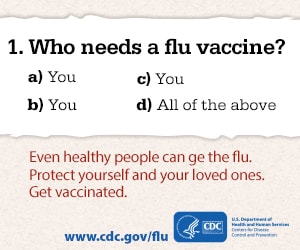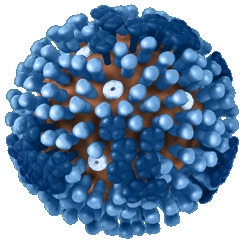Each month, we weigh in on a health and wellness myth and explain the real cause behind the malady.
This month’s misconception: Getting a flu shot causes the flu
Cases of the flu have already been identified this season, and October is typically when the flu season starts, according to the Centers for Disease Control and Prevention.
Around this time, many people pull up their sleeves and get an influenza, or flu, vaccination to protect themselves from the virus. But many others resist, believing that the vaccine will give them the very thing they are trying to avoid.
The flu is a respiratory illness can cause serious illness and even death. Young children, seniors and those with chronic health conditions are at higher risk of experiencing complications from the flu.
Receiving an annual flu shot is the best way to protect yourself – and it does not cause the flu.
There are two versions of the injected vaccine – one that has an inactivated flu virus and one that does not contain any flu virus (recombinant influenza vaccine). The only side effects that might occur include soreness at the injection site, a low grade fever and aches; rarely, the vaccine can cause a severe allergic reaction, according to the CDC.
This year, the nasal spray vaccine is not recommended due to questions regarding its effectiveness.
Because everyone is at risk of getting the flu, individuals 6 months and older should receive an annual flu vaccination, unless he or she has a life-threatening allergic reaction to ingredients in the vaccine. Here’s a list of who should and should not get the vaccine from the CDC.
Remember, it takes about two weeks for the full benefits of the flu vaccine to take effect, so get your vaccination as soon as possible.
